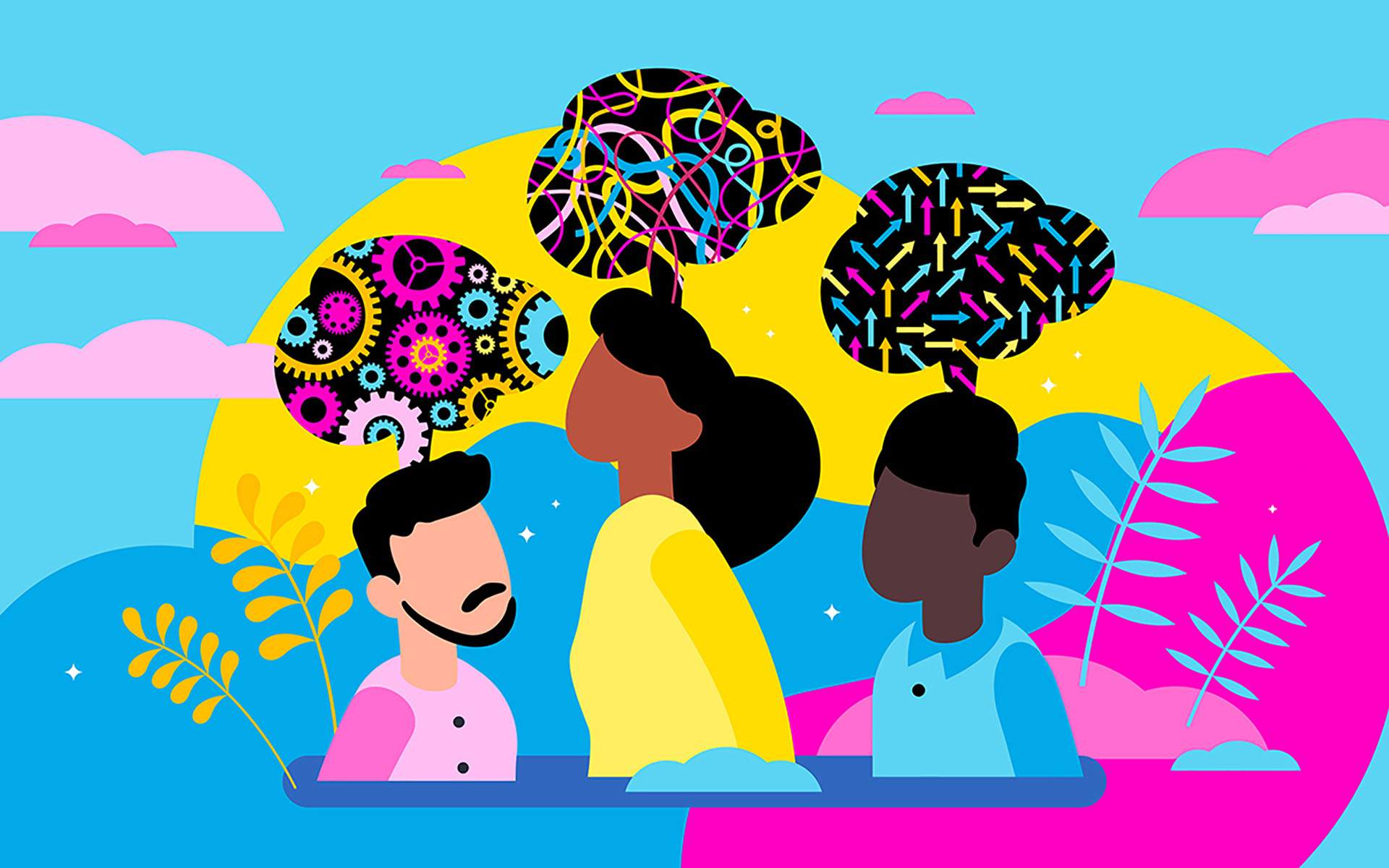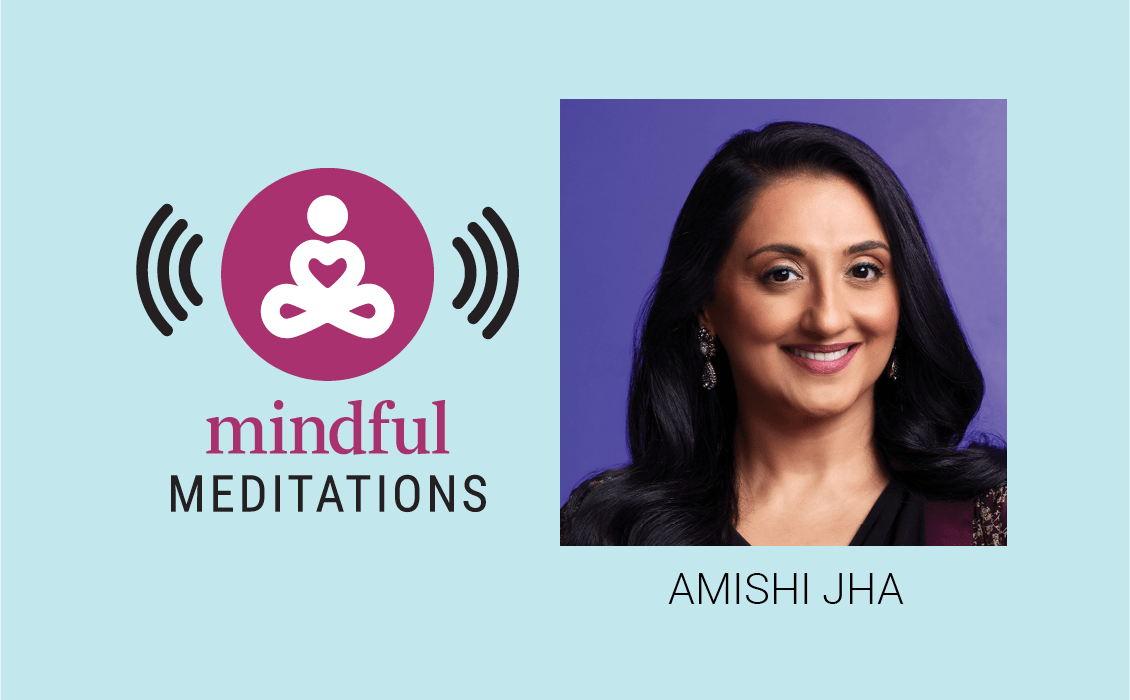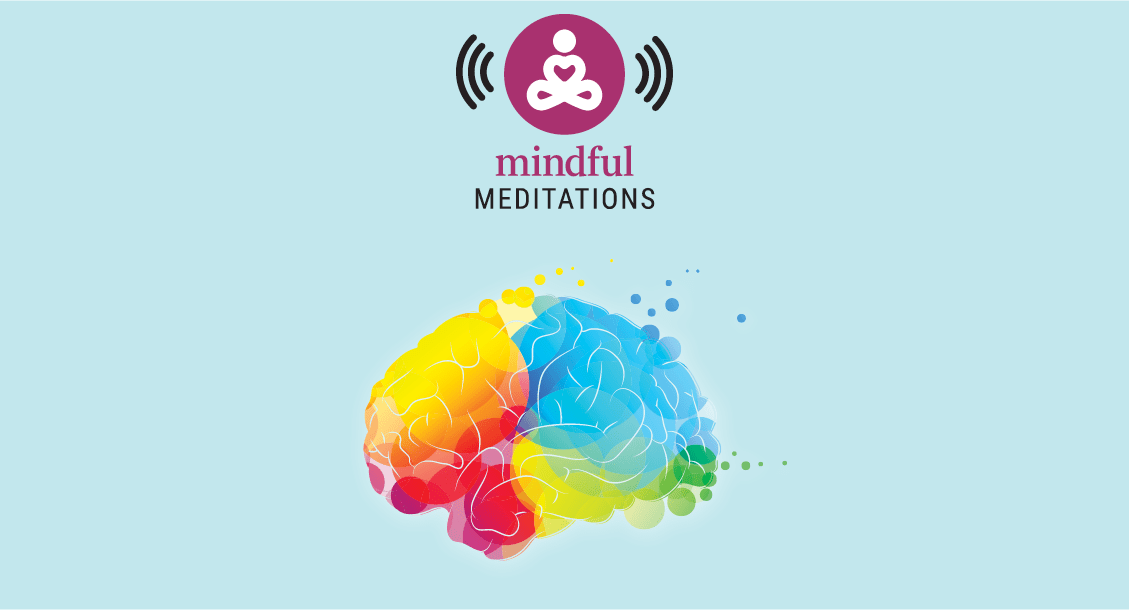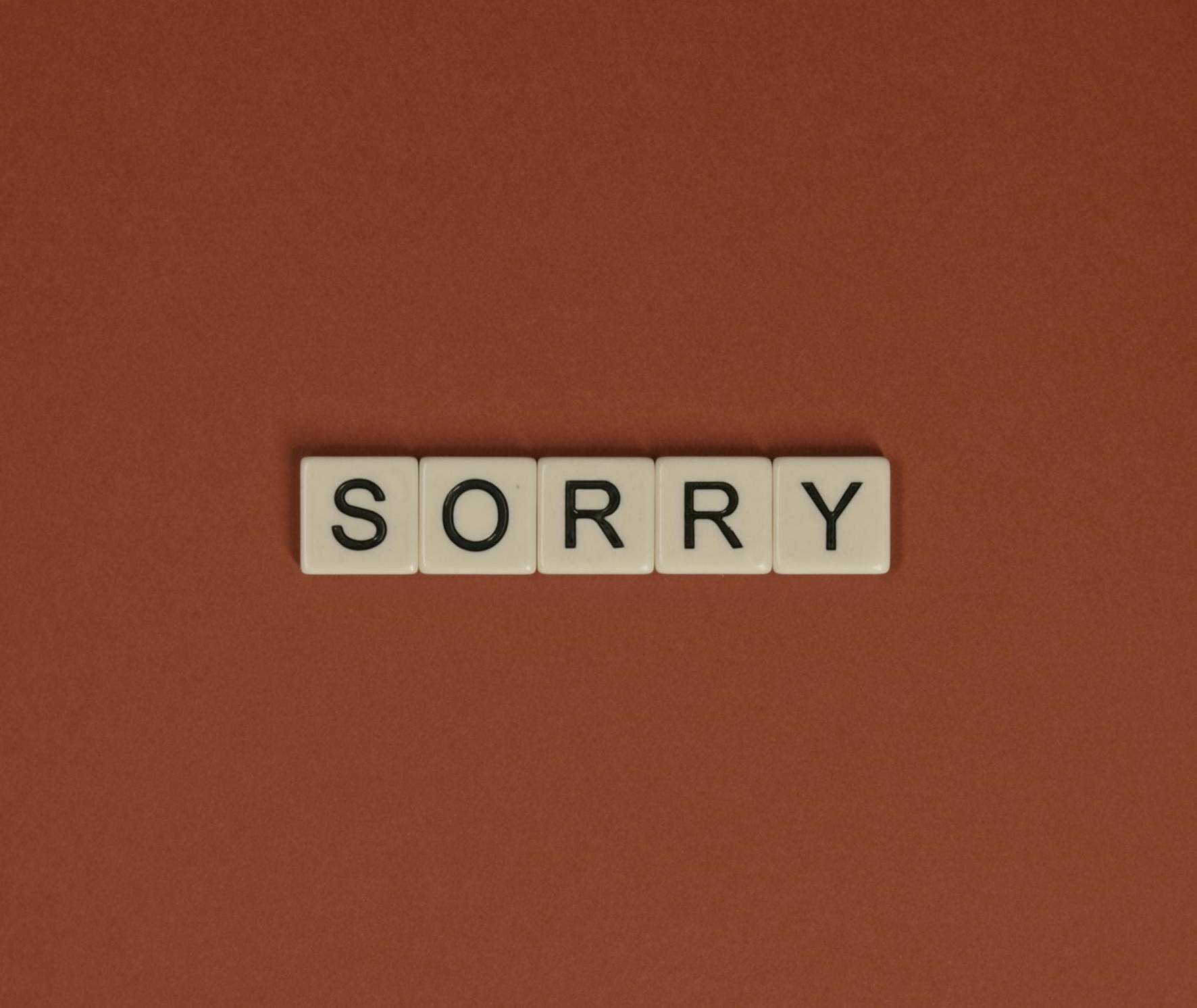Real Mindful: Find your Focus with Amishi Jha
Stephanie Domet: Hello, and welcome to Real Mindful. This is where we speak mindfully about things that matter. We meet here twice a month to introduce you to some of the teachers, thinkers, writers, and researchers who are engaged in the mindfulness movement. You’ll hear all kinds of conversations here about the science of mindfulness, the practice of mindfulness—and the heart of it. I’m Stephanie Domet. I’m the managing editor at Mindful magazine and mindful.org. And this is Real Mindful.
Today on the podcast, my guest is Dr. Amishi Jha. Amishi has been featured many times in Mindful and on mindful.org for her work with high-stress cohorts like first responders and military service members. We spoke with her in the early days of the pandemic about the military acronym VUCA, which stands for Volatile, Uncertain, Complex, and Ambiguous—and how our brains react to VUCA circumstances, plus how mindfulness can help us regain ownership of our attention. You can read an excerpt from her book Peak Mind: Find Your Focus, Own Your Attention, Invest 12 Minutes a Day in the December issue of Mindful, which is on newsstands now. Amishi and I connected a few weeks ago for a Mindful Live session, and we’re pleased to bring you that conversation on Real Mindful today.
For now, I’m very pleased to welcome Amishi Jha to Mindful Live. Amishi is a neuroscientist and a professor of psychology at the University of Miami. She’s the author of Peak Mind: Find Your Focus, Own Your Attention, Invest 12 Minutes a Day, which has just been published by Harper One. Amishi’s research focuses on the brain basis of attention, working memory, and mindfulness based training. She was selected as a science and public leadership fellow by PopTech and she serves on editorial review boards of Frontiers in Human Neuroscience, Journal of Experimental Psychology General, Frontiers in Cognitive Science, and Frontiers in Psychology. She is a regular contributor to Mindful and mindful.org and as a person who’s currently struggling with focus, I could not be more glad to have you here today for this conversation. Amishi, hello, and thank you so much for joining us today.
Amishi Jha: Oh, it’s so great to be here with you, Stephanie.
SD: So I mentioned that I’ve been struggling with focus, and I wouldn’t be surprised if every interview you’ve done around this book has started with a similar admission from those. How common is the struggle?
AJ: Oh, very, very common. And I would say it’s at the point where it feels like a crisis moment. Collectively, I think that probably already in the ramp up ramp up before the pandemic, so to speak, the notion of being constantly on call, being reachable 24/7 and having a serious industry effort from social media companies to create algorithms that are not only there to capture but really mine our attention contributes to all of that. I think the pandemic kind of put it over the top, though, for many of us, because of the nature of what we faced—the challenge, difficulty, uncertainty, etc. You’re not alone. But there is some good news and the first piece of good news that I really do want to acknowledge and that I really love to give people is it’s not your fault.
I think the problem ends up being when people truly personalize the challenges that they experience, like, “I just can’t pay attention. It’s my brain. That’s the problem.” And no, I think that for the most part, the response we’re having is very normal and, in fact, indicative of a very well-functioning attention system. If you feel pulled by things that are intended to pull you, well, your attention is doing what it’s supposed to do. If you have a preoccupation with things that are life threatening, like a global pandemic and a deadly virus, that’s appropriate. That’s exactly what we should be doing. The hard part is trying to juggle all of that and trying to live what we consider a normal life. That’s where it feels like a crisis. But I think knowing that there’s nothing intrinsically problematic with us is important.
The other piece of really good news, which is why I’m always thrilled to talk and do anything with mindful.org, is the reality that there’s something we can do. There’s actions we can take. We can actually solve a lot of this crisis experience through training that we can provide ourselves and the resources that are available to guide us to do that like those available on this platform.
SD: That is all good news, and even with what I know about mindfulness and about the brain, it’s helpful just hearing you say that we tend to think it’s our fault and I think this all the time, “why can’t I focus?” If a friend said that to me, I would say “because we’re in a global pandemic and that does make it tough to pay attention.” And there is so much that can fracture our attention, especially right now, as you say, not just social media, but then we’ve talked with you about this before, the way the volatile, uncertain, complex and ambiguous situations play havoc with our ability to really focus our attention. Certainly, we have been in an extended VUCA period. How does the relentlessness of all this act on our attention?
AJ: I think the first thing to acknowledge. I guess just in terms of my own background is that these are exactly the kind of circumstances that my lab has been studying for about 15 years now. Most of our work is with populations like first responders, military service members, military spouses, medical and nursing professionals, and part of my motivation for wanting to study those groups is because the nature of the circumstances when they are to perform at their best is characterized by the exact circumstances that are likely to deplete and degrade attention. You described those perfectly. VUCA: Volatile, Uncertain. Complex, and Ambiguous. That term is one coined by the US Army War College, but it’s not just that these individuals will experience that. It’s like, “You should show up at your best. We don’t want a surgeon that’s distracted during emergency surgery.” “We don’t want a firefighter feeling distracted when there’s a four-alarm fire going on.” We expect this of certain populations, and that’s what motivated us to start looking into solutions.
I had no idea that if you had fast forward 12 years later that we’d all be in that position, but the reality is what we saw in the lab over and over again troubled me enough to want to find solutions for populations like the ones I mentioned when we tapped in and tracked their attention. We had them do laboratory-based experiments where we wanted to see how well they were performing on potentially demanding tasks. So they do these tasks, we get objective metrics or even sometimes brain metrics, and then several weeks later we’d have them do the same thing again, same kind of battery of metrics. If the interval between when we tested them—two to four or six weeks, sometimes even longer—if that involved these VUCA circumstances, attention significantly and reliably declined. It didn’t really matter if the nature of that demand was life threatening or even high stakes. For example, even undergraduates over the course of the academic semester who report increasing experience of stress will have less well-functioning attention at the end of the semester relative to the beginning of the semester. That’s just the reality of what happens now.
The unfortunate side, which ends up turning it into a crisis even if attention is behaving as it should because it’s responding to the stress by engaging itself over and over is that for undergrads, for example, they still have to perform on final exams. For military service members we saw this during pre-deployment and they’re still going to be deployed. For all of us during the pandemic, we’re experiencing these circumstances. We still have to perform. It can be parenting our children and doing our work and showing up in the ways that we need to for family and friends, so that ends up being a problem. Does that answer your question, Stephanie?
SD: It answers a lot of questions—that our attention can easily be frayed under stress and then when we’re under stress for an extended period of time, more so.
AJ: That’s right. It’s like, what is it about these VUCA circumstances that’s so problematic? Yeah. Well, we find out from laboratory-based studies that if we have somebody come into a lab and have them do an intentionally demanding task and we just take the cold cognitive tasks—for example, something as simple as “you’re going to sit in front of a screen and every time you see a number of press a button, except when that number is three,” it’s really boring experiment. So they’re sitting there pressing the button and their mind starts to wander. They’re not even thinking about what’s on the screen. Soon enough, the three shows up and they press the button. People are bad at this and there’s nothing going on that’s particularly problematic, it’s just their own mind. Wandering will occur, and that’s very well known. About 50 percent of our waking moments, our mind will wander away from the task at hand. If you take that same experiment now and add in news media images which could be neutral images or potentially negative images that we see on our phones every day, all the time, just embed them in this experiment. All of a sudden now the amount of wandering increases and the performance starts to tank further.
So even in the context of a single experiment, not even a high-stress lived circumstance, you see this. And we do this with various kinds of stimuli, which has led us to the understanding of the things that really do seem to be like kryptonite for attention. Stress, negative mood, and threat tend to be the big three. The answer for why they are so problematic for attention seems to really be around this notion of mind wandering. Our attention is hijacked away from the moment and we’re either thinking about past circumstances or something in the future.
SD: And we’ve all been living in those circumstances for the last couple of years.
AJ: But I wanted to say one more thing about that because it sounds very depressing. I can’t lead a life where I just never have stress, threats, or negative moods. I wish I could. I’ll tell you that even for those soldiers, even for those first responders, for the students, also all these groups that we studied in the lab when we offer them mindfulness training exercises during the high stress intervals and they start practicing during the high stress intervals, they don’t decline in their attention. They actually stay stable over time, which is kind of amazing. That’s what resilience looks like to me. And I would even use the term, not resilience, “pre-silience.” We’re protecting. If you say resilience is in some sense, bouncing back from adversity and challenge, pre-silience is not needing to bounce back, you’re staying steady. And what amazes me is that this is people practicing few minutes every day on their own, which is the hopeful part.
SD: I had my own experience of this that I want to share with you. I used to have a really demanding job, a different demanding job from what I currently have. I was the host of a daily three-hour current affairs radio show, so it was very fast paced, very demanding, and when I left that job after eight or nine years and tried to return to the novel I was writing, I found that my basic attention span was just smashed to smithereens. I’d grown so used to splintering my attention, being on Twitter reading background on one guest while interviewing another live on the radio, listening to my producer in my headphones with one ear, changing tasks on a dime. And I was rewarded for being able to do that. That’s what my job required and I’m really good at fracturing my own attention. But when I tried to get back to the quieter work of writing a novel which requires the exact opposite of all of that, I couldn’t stay on task for four, even five minutes at a time, and I had to use a little kitchen timer to retrain myself to just sit and focus on my writing for 10 or 20 minutes. It was a lot of work and I had to be super intentional about it. Now, in year two of this pandemic, my attention span has once again splintered. You know, that potent mix of doomscrolling Instagram nightly, Netflix marathons, screen time integrating our attention.
AJ: You said something very important regarding your prior career and the way in which you successfully maneuvered through that set of challenges. One way we can pay attention, which we might call focus, is this notion of limiting, directing, willfully pointing that brain resource to whatever it is that we want to pay attention to and at the brain level, at the behavioral level, we get crisper, clearer access to the information that we focus on. I give the metaphor of a flashlight in a darkened room. Wherever it is that we direct that flashlight, we get privileged access. It’s a very, very powerful thing to do. Now I didn’t say flashlights, I said flashlight, because frankly, this is a singular brain process, meaning we devote and constrain all of the brain’s resources to privilege whatever we direct our attention toward.
SD: So I can just have one, not one in each hand.
AJ: In some sense, what you were doing is taking that flashlight, directing it toward one thing and then redirecting it to another thing and then redirecting it back. What probably allowed you to make those efficient switches was another brain system of attention called the alerting system. And this is very different from the flashlight. It’s more like a floodlight or fog light. I have one on my garage and I always think of this because it’s a motion sensitive one so what it privileges is what is happening right now. The information it cares about is the current state of things but it’s not selecting based on the type of information. So you’re broad, receptive, alert. Another way to think about this is to think about if you were driving down the road or walking and you see a yellow flashing light near a construction site or maybe a school. You think, “OK, pay attention,” but that paying attention is very different than, “look at the words on the screen” or “listen to a particular voice.” It’s broad and receptive.
What I think you were doing, and you did it well, was focusing your flashlight while you were keeping your flood light on. Many of us can train our minds to get better and better at that. It is exhausting, by the way and it sounds like you may have experienced that. Now moving to the novel and when you had to retrain yourself. There’s always something that can pull your attention and because you’re so used to the switching, you might be prone to respond to that. It’s almost like if you’re in a mindfulness practice and you get an itch on your face, you have a choice, right? You know that your urge is to scratch the itch, but in that moment, when you are dedicating yourself to pay attention to breath-related sensations, for example, and the itch arises, it’s seen as an irrelevant distraction, but it’s pulling on that flashlight. And then you have a choice to say, am I just going to go ahead and itch? Or will I acknowledge the presence of that feeling, allow it to just pass away, and keep my focus where it’s going to be. So the floodlight acknowledged that itch, but it didn’t take action. That’s part of that retraining process of all those thoughts, feelings, internal and external distractions that arise. We have to train ourselves to be tolerant of them, accepting of them, and not as easily pulled in a thoughtless automatic way, which we won’t do unless we actually dedicate ourselves to training the mind in that way.
SD: Right, and I guess the great news is that the training is possible. You’ve come to this information that it can take as little as 12 minutes a day. Can you talk about what that 12 minute investment needs to look like?
AJ: We often hear the term “neuroplasticity,” which is essentially our repeated experience and engagement in certain kinds of activities, transforming the way the brain functions, and that’s all we’re talking about. That’s a propensity of mind that has been around forever. I think the only new part is that we can train it in a way that can actually advantage our functioning and we can track that with brain imaging. We can see that repeatedly doing something that actually is better for us can change the brain in beneficial ways. That’s a real win.
The tricky part was that attention is a slippery thing. How do you actually train for that? And we tried all kinds of things. For example, gadgets. We thought maybe if we stimulate the brain, we might be able to get it to attend better, and frankly, in the short term, it may. In the long term, the jury’s still out. The other thing that we and the field of research have looked at is brain training games. The first thing researchers did is they gave people this video game to play for 30 days. And yes, you got way better playing the video game for many days in a row, your score would just go up and up and up. The real test is how generalizable the benefit is to your attention. Does it transfer over to this similar, but not same context? People start falling apart. So that posed a big challenge. We were looking for a method of training where you could go from a context that’s a training environment to something that’s different and see a benefit. In my mind, it was unlikely that we could get people to close their eyes, sit by themselves in a room, pay attention to the breath, or do a whole host of other mindfulness practices, and then come into the lab and get evaluated on tasks. But we saw benefits, which was the exciting thing.
To answer your question about the 12 minutes, I wanted to go big in the sense that nobody ever really tried this to bring the tools of cognitive neuroscience to evaluating attention. We partnered with a month-long retreat that happened at Shambhala Mountain Center for thirty days and practiced mindfulness-based practices for the entire time. I was like, “if we don’t get it here, it’s like never going to show up.” And sure enough, it did. We found beneficial effects. That task performance increased on a variety of tasks, which we’ve even published on. But that’s not reasonable for most people to do and you certainly can’t have this be your daily lifestyle. Luckily for us when we started this work and wanted to move it from the retreat context to everyday life, we were able to lean on a very well-developed program. And this was the early 2000 Jon Kabat-Zinn, Mindfulness-Based Stress Reduction program. It requires about eight weeks of training and 45 minutes a day of daily practice. That’s better than trying to go away for a month-long retreat, but we wanted to work with people experiencing time and performance pressure and we wanted to work with them in the height of their stress levels. We found that those that practice more benefited more, but beyond that, I wanted to know what the threshold was. And that threshold ended up being about 12 minutes. And now people were willing to do it. They weren’t blowing it off. They weren’t giving up. And the more days a week they did, the more they benefited.
SD: How exciting was that for you?
AJ: It was super exciting and kind of surprising.
SD: Well, it seems to me that I spent a long time in my career training my brain to be distractible.
AJ: I think that’s a really powerful and useful opportunity to reframe. The earlier we can attune ourselves to noticing our own mind wandering, the better we can be at redirecting it back. Having access to practice and a community that likes to practice, values it as non-trivial, it makes a big difference in the same way that, you know, if you wanted to pick up a new running habit or walking habit, being around a community of people that care about that activity can really make a difference. And rekindling the importance and value in your life that this is not something you can coast on. In the same way a marathon runner can’t train for a marathon and think “I’m good for the rest of my life. I can run a marathon whenever I want.”
SD: Before we turn to audience questions, I want to ask you quickly about ADHD. This is no doubt anecdotal, but I feel like over the last couple of years, particularly during the pandemic, I saw a big increase in both people I know and people I encounter on the internet, finding that they have ADHD or at least ADHD symptoms. I just wonder what you say about that.
AJ: It makes complete sense to me. In some sense, attention deficit is exactly what I started out talking about with you. This notion that VUCA circumstances, stress, threat, poor moods are going to disable and degrade attention. We talked about two systems already: the flashlight and the floodlight. There’s a third system, something called executive control which I call the juggler. This system’s job is to ensure that our goals and our behavior align moment by moment. In order to do that, the executive function system needs to maintain what the goals are and get us back on track. So the fact that more people are reporting feeling like this makes sense to me because in many ways these three systems are probably getting driven down. I mean, this notion of feeling a cognitive fog, there’s nothing wrong with that. It’s unfortunate and it’s painful, but it’s real. It’s not imagined. And in all, all I would say is when it becomes a clinical diagnosis, that’s essentially when it’s so problematic that it’s affecting your daily functioning. Then I think you do need to get some real professional support. But just keep in mind that it’s not just any one of these systems. Attention dysregulation, attentional dysfunction could be some level of set points and interactions between these systems. So I think that it’s good for people to understand the way that attention works, and even if they say, you know, I feel like my attention is not working so well, look to the other systems, how are they doing? And I really think that it’s important not to get self-deprecating regarding our attention because it doesn’t serve us. Frankly, it’s another source of distraction, and it’s a very normal way the brain is responding and we can train to get better. So I’d rather people orient toward what the winds are than are within our control.
SD: That’s another aspect of mindfulness meditation: to bring your focus back with compassion. There’s no sense berating yourself.
AJ: Absolutely, befriending yourself so this is done in a manner to help you live your life better and more fully.
SD: I know what’s at stake for me personally when my focus is shot. It means I spend more hours at my desk, which means my body and my mind both feel worse. At the end of it, what are the stakes for all of us on a sort of socio-cultural scale? What’s at stake when so many of us are, as you say, missing 50 percent of what’s happening?
AJ: I mean, frankly, we don’t want the number to go above 50%. And I like the way you asked the question, because it’s not just us as individuals, it is a collective impact that this is having and will continue to have. We cannot be so fractured both within ourselves and in our ability to interact with others because our attention is needed not just for our own ability to think but we also need it to feel and regulate our emotions and to connect. We direct that flashlight toward other people. We have the floodlight available to see what’s happening in our environment and with the interactions we have. Our juggler cares about the interactions and the management of goals tied to our interactions with other people. All these things suggest that when our individual attention systems are compromised, the group’s ability to to solve big problems, emergent problems, problems we haven’t even experienced yet, is compromised. We need to take it upon ourselves to up level our ability to have access to our own mind because the world needs it. We need it in our own lives, but the world needs it, too.
The climate crisis is one example, but there’s another one that I think I wanted to mention, and I did write an article in Mindful about this. The consequences, I think, do contribute to social unrest and to political divisiveness. This is still being actively debated but there are plenty of studies that suggest that the default of the brain is to believe information first, meaning if you hear it, you will believe it. And then attention allows you to deliberate whether the thing you believe should be unbelieved. It’s not that you were presented with ideas and then decide which ones you want to believe. The default is belief and then unbelief. Now, why would that be? Well, because our comprehension system is tied to our perceptual system. So seeing is believing. I see your face, I don’t think it’s an imagination of my mind. Perception defaults to believing. Comprehension does, too. So now, all of a sudden, we’re globally scattered. Our attention is shot, stuff is being thrown at us, and we’ve lost the capacity to evaluate in the same manner. It’s worse because now we have siloed communication because of the social media algorithms that are further fracturing us so we don’t even have a chance to bounce ideas off of people. Attention is not just nice to have, it’s a must have at the individual level and, frankly, for our collective good and our collective survival.
SD: Thank you for that. Those are high stakes. I appreciate it as a person who’s very externally motivated by the needs of others.
You can read an excerpt from Peak Mind in the December issue of Mindful or at mindful.org, and you’ll find much more by and about Amishi Jha on mindful.org. Meantime, if you enjoyed this episode of Real Mindful, perhaps you would leave us a review? You can do so wherever you find your favourite podcasts. Your review helps other listeners decide whether Real Mindful is right for them.
And we’d love to hear from you. Let us know what you thought of what you heard today on Real Mindful, or suggest a topic or guest for a future episode. You can drop us a line at yourwords@mindful.org.
And did you know we have a weekly practice podcast called 12 Minute Meditation? As you heard Amishi say, 12 minutes a day is enough to yield benefits like increased focus, clarity, calm, and compassion—and we want to help you with that! So each week we deliver a fresh mindfulness practice directly to your ears, from a leading mindfulness expert. You can subscribe to 12 Minute Meditation wherever fine podcasts are found.
We’ll return with another episode of Real Mindful. Till then, as Amishi Jha says, just get on your mat, close your eyes, practice.
Show Notes
Find more from Amishi Jha here:
Peak Mind excerpt: “Find Your Focus: Own Your Attention in 12 Minutes a Day”
Find Your Focus: A Conversation with Amishi Jha
More from Amishi on mindful.org
And more from Mindful here:
December issue of Mindful magazine: The Science of Mindfulness
More Real Mindful podcast episodes
The 12 Minute Meditation practice podcast
And don’t forget to let us know what you thought by emailing yourwords@mindful.org.
READ MORE
The Brain Science of Attention with Amishi Jha
Amishi Jha is a neuroscientist and associate professor of psychology at the University of Miami. She’s the author of a forthcoming book (2021, Harper One) on the science of attention. Her research focuses on the brain bases of attention, working memory, and mindfulness-based training.
Read More
Understanding Your Brain’s Attention System
Learn how stress, mood, and feeling threatened can affect your attention.
Read More
Training the Brains of Warriors
Neuroscientist Amishi Jha explores how the military is using mindfulness to tap into calm and focussed attention under extreme stress.
Read More










